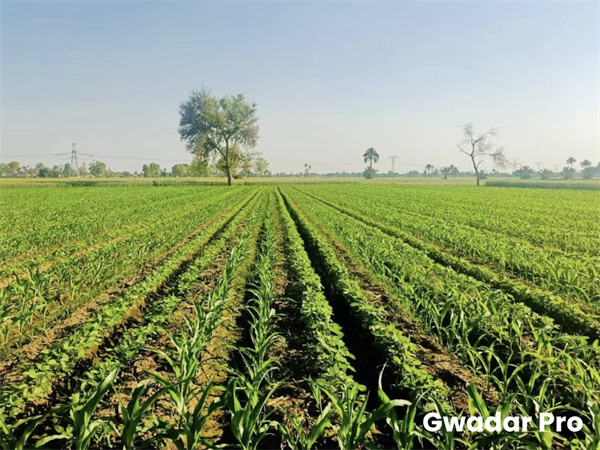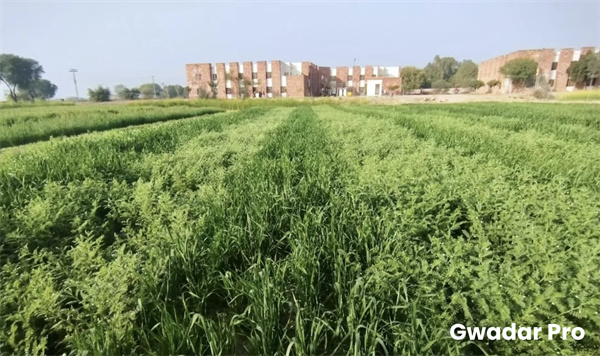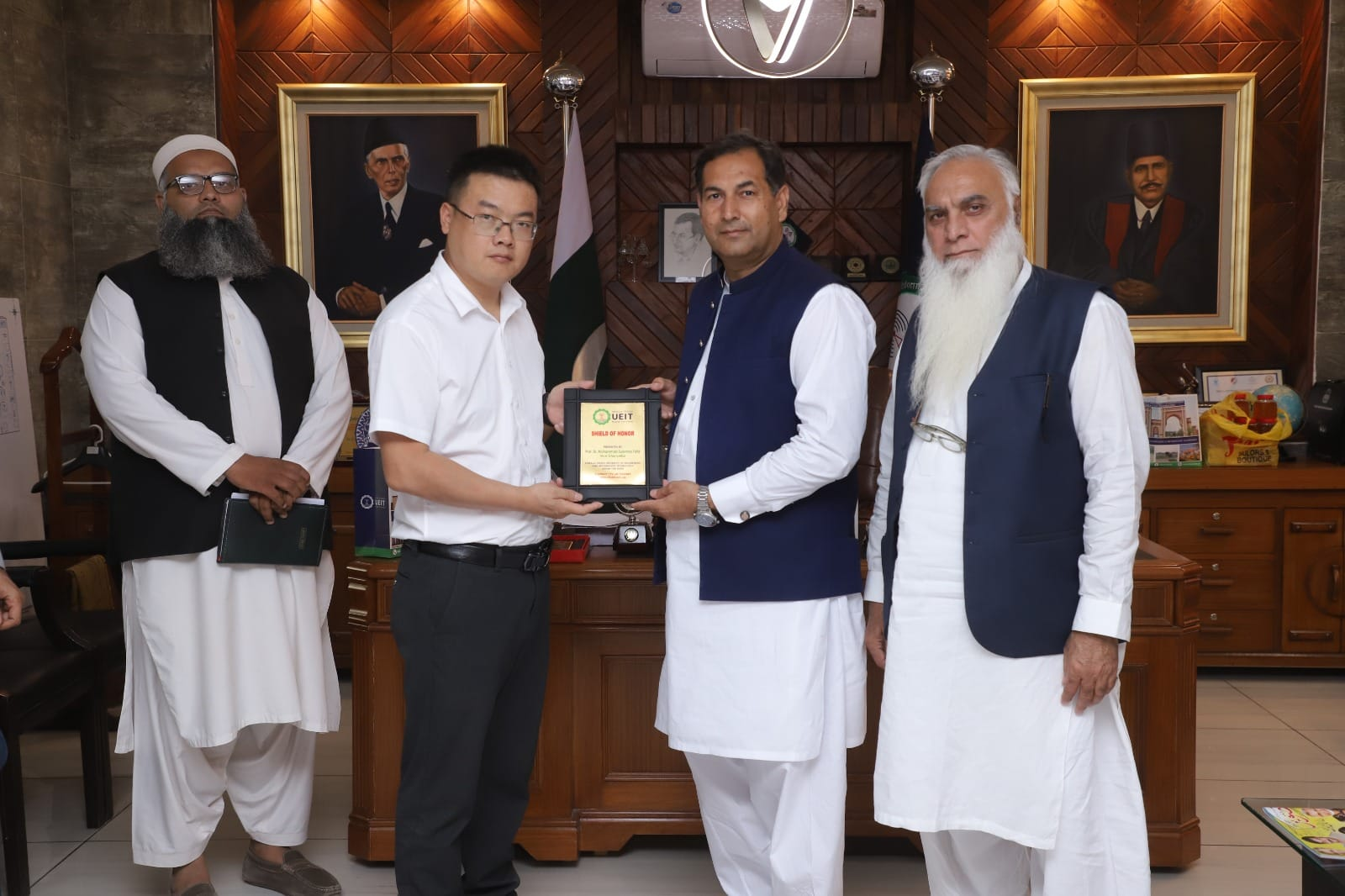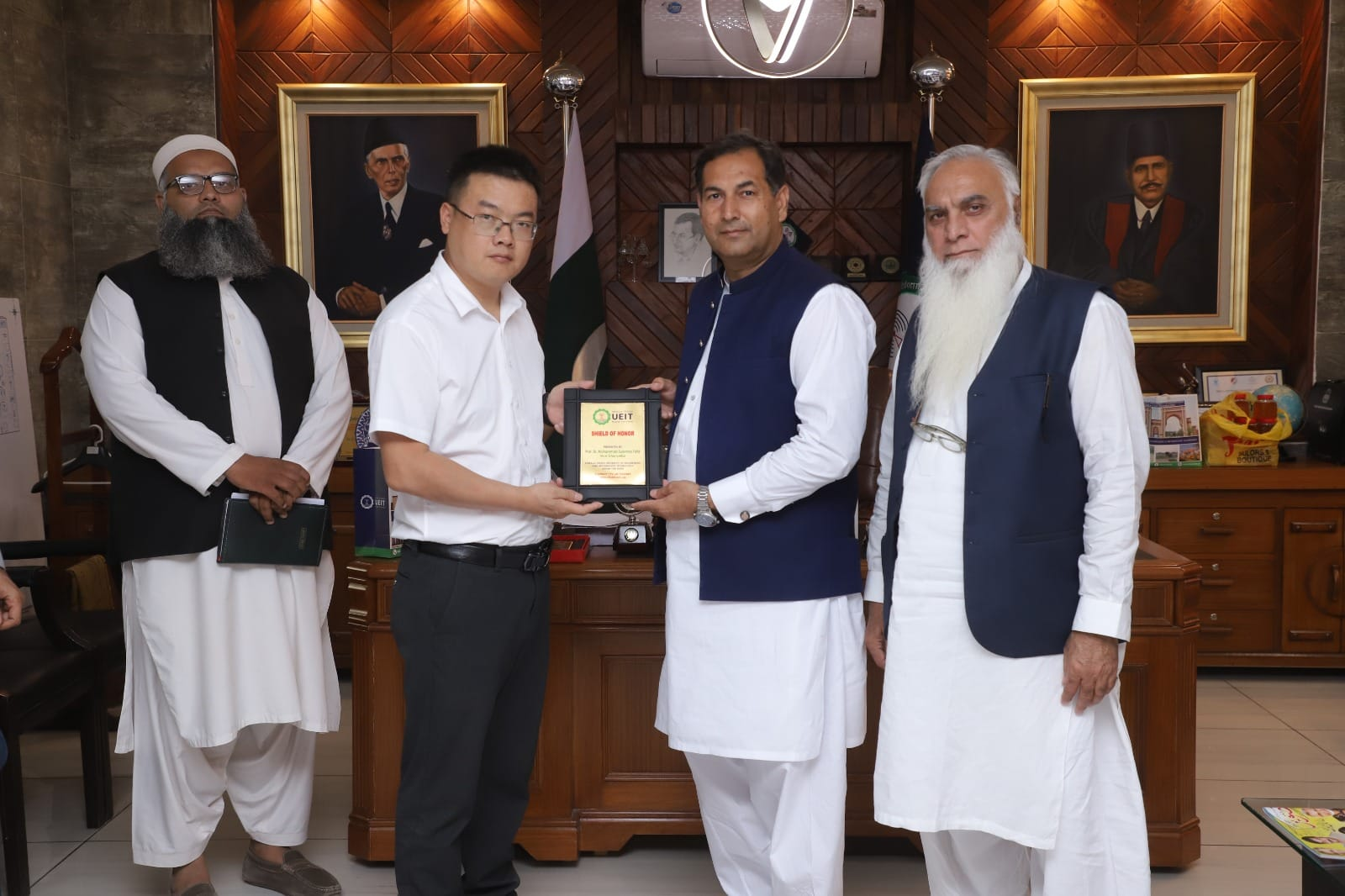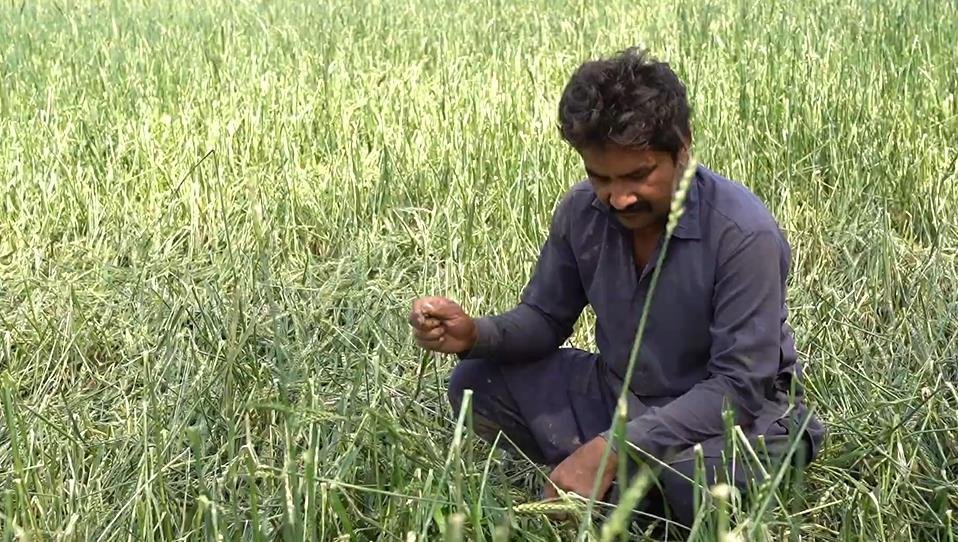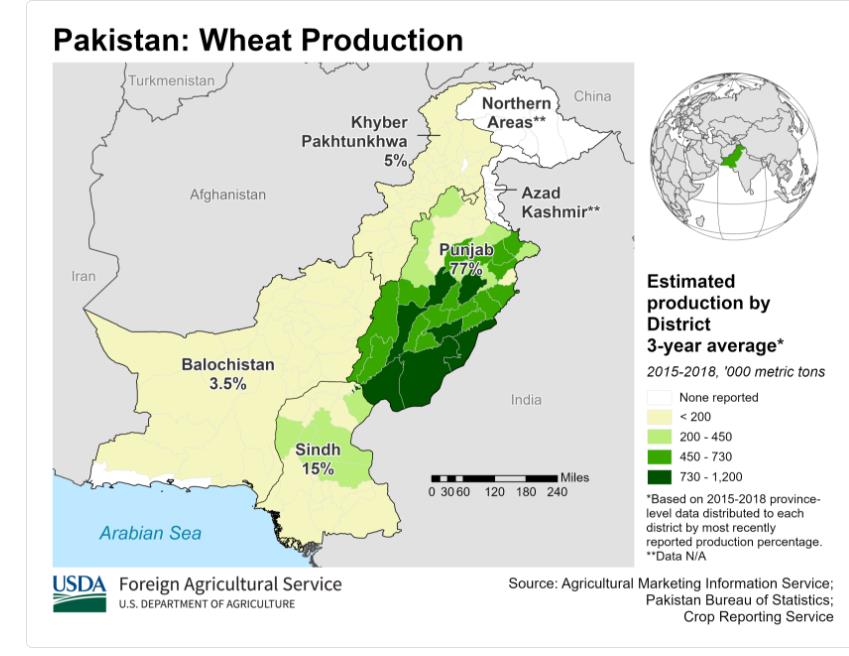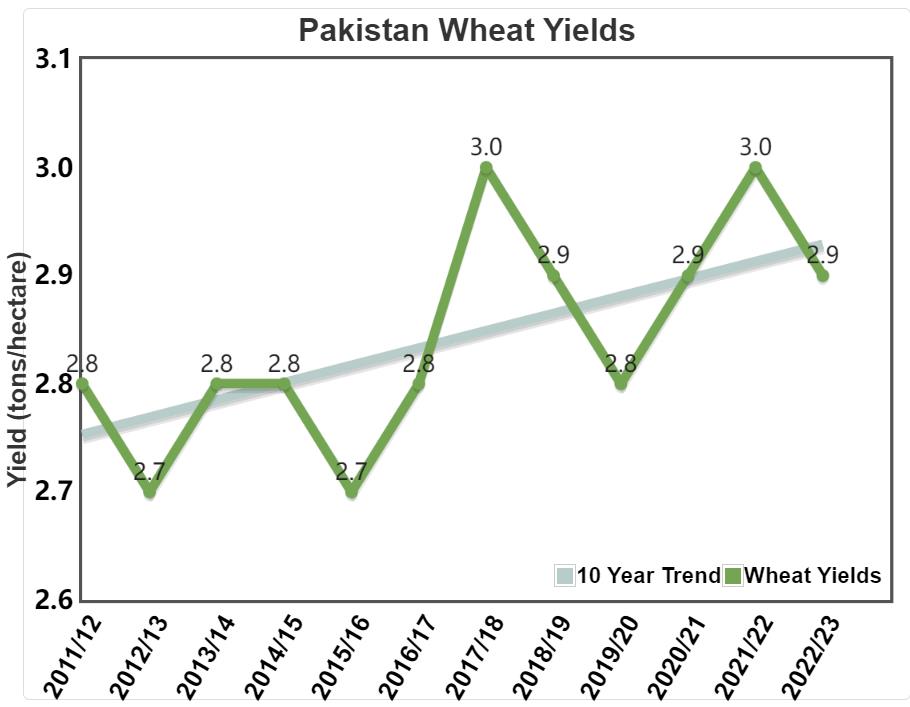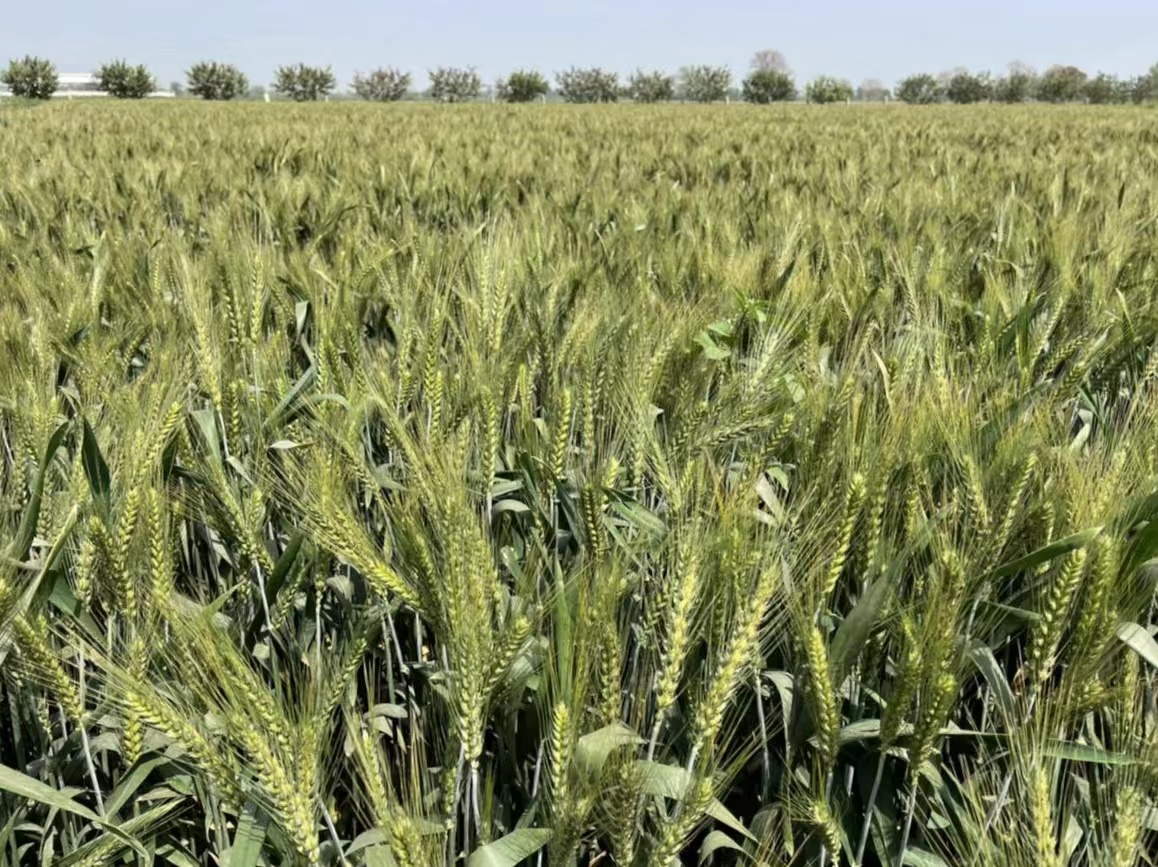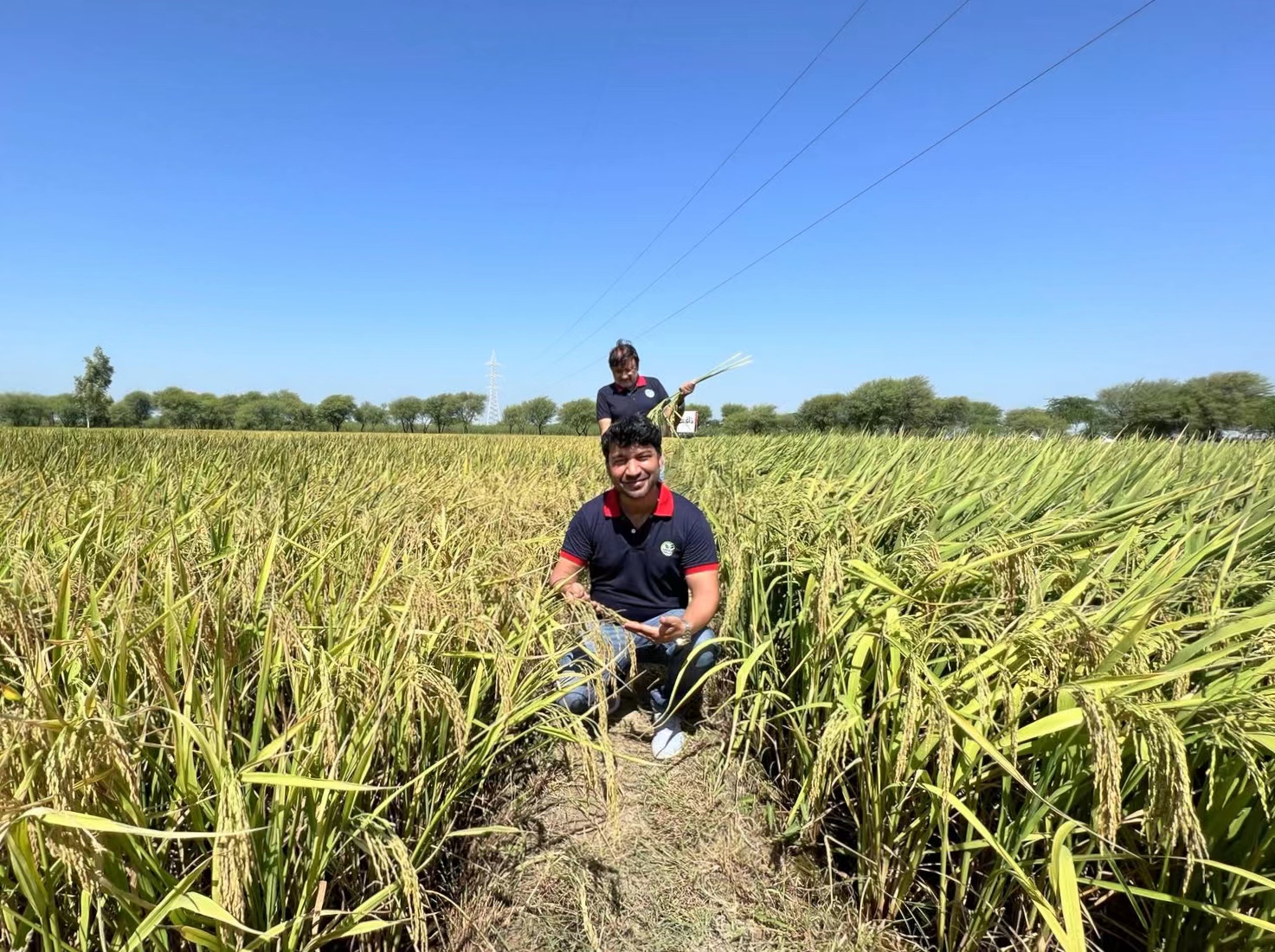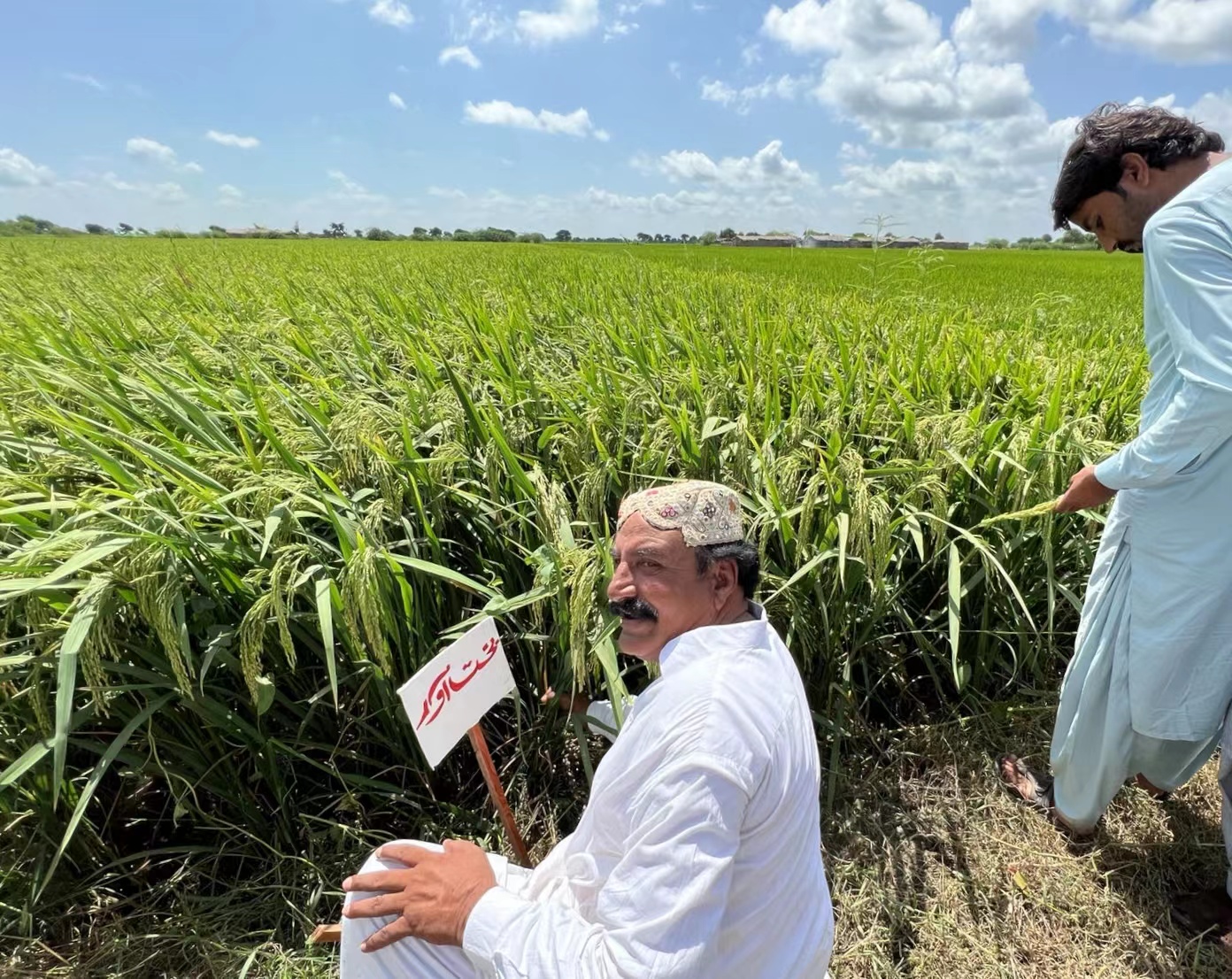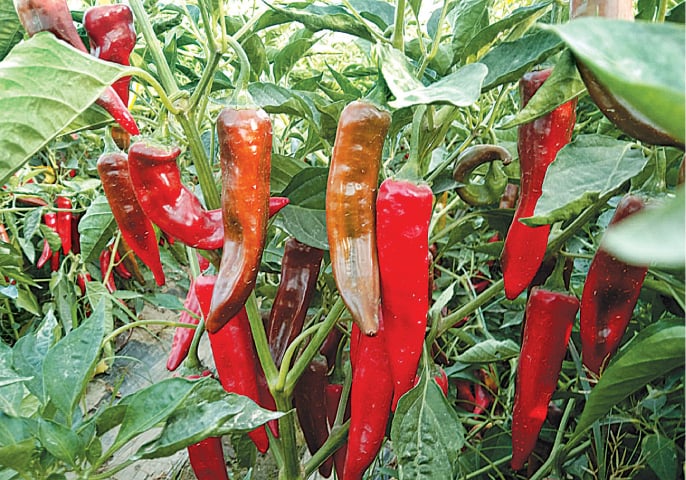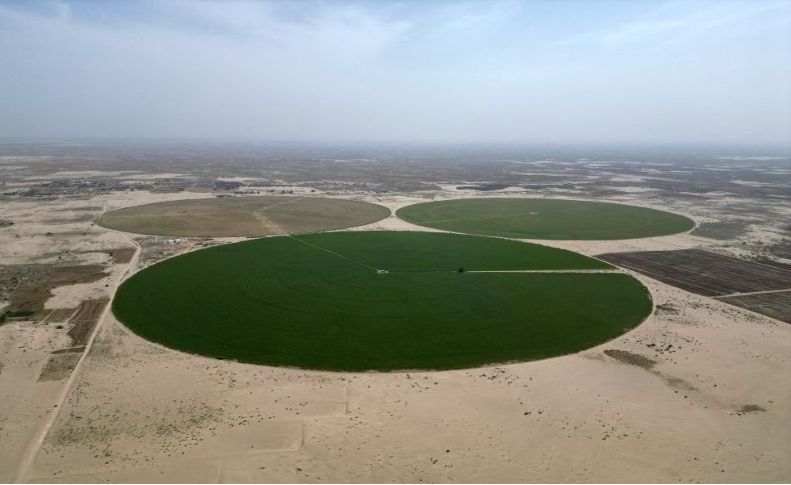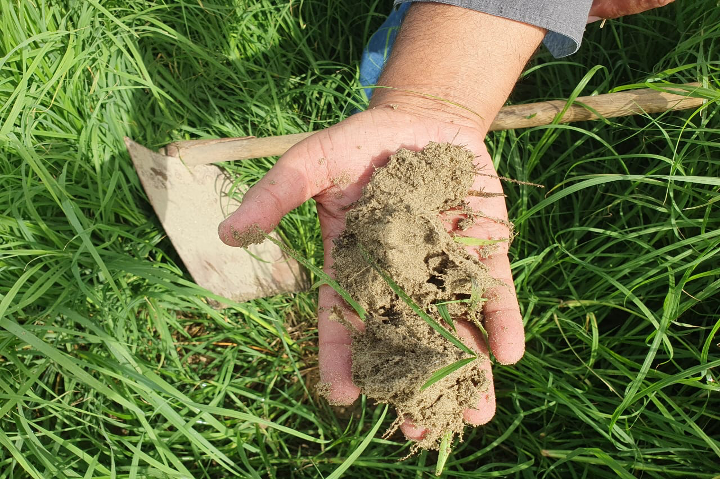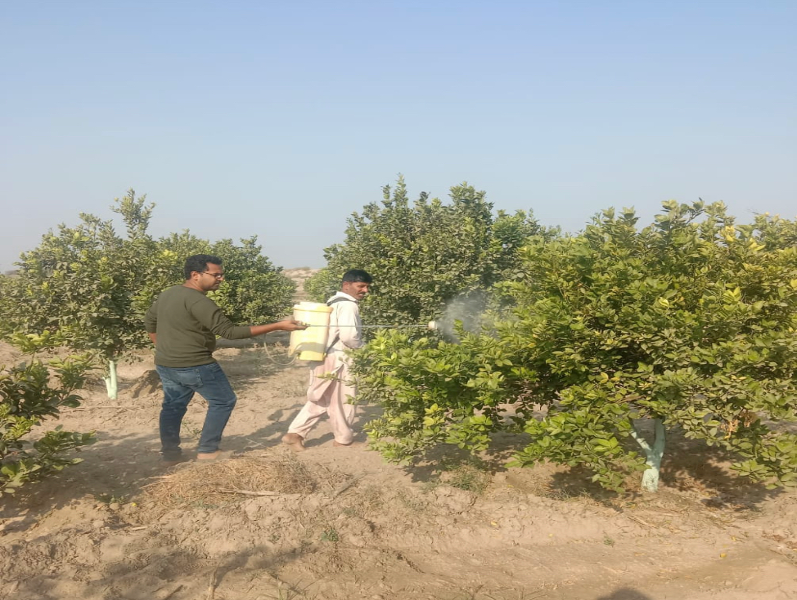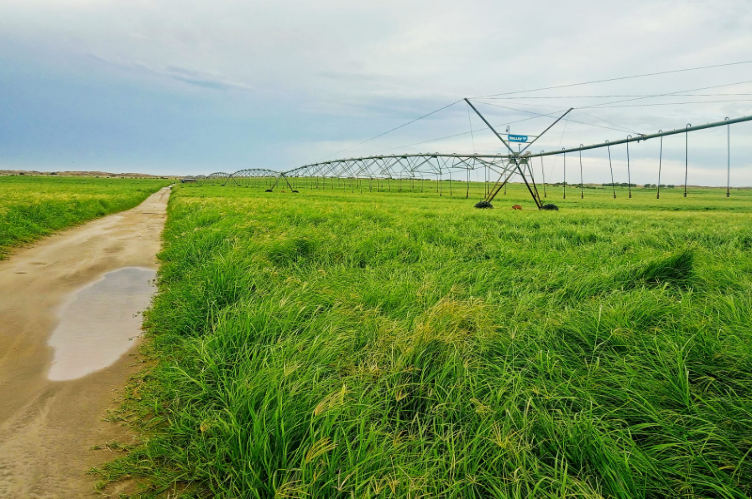.,.,
Hybrid wheat cooperation to enhance risk resistance in agri sector
By Wu Siya | China Economic Net
Apr 18, 2023
LAHORE, Apr. 18 (China Economic Net)- “Dreadful. I’ve never seen such violent hailstones in my life,” Majid Rafiq, a wheat farmer from the Mandi Bahauddin district in Punjab province, sighing sadly as he gazed at the lodged wheat ears in his field. “Whole harvest has been destroyed.
The wheat was supposed to be harvested in less than a month, but now the hail has broken stalks, then the broken places will rot downward rapidly. So sad to say, it's worth nothing.”
A Pakistani wheat farmer checking disaster situation in his field [Photo provided to CEN]
Pakistan is embracing wheat harvest season. However, in some areas, unexpected climate disasters wiped out farmers’ toil for a whole year. Not all of Pakistan’s wheat industry has been hit, but for farmers in the affected areas, “the rotting straw can’t even be used as silage.
I have no idea how many other farmers are like me because there is no accurate assessment report yet. But to my knowledge, the southern part of Punjab, Layyah, Kot Addu and other areas have been hit sorely by hailstones. Relevant departments must do something to solve the food shortage. We are in desperate need of help,” Nasar Gondal, District President of local agriculture enterprise Kissan Ittehad, spoke bluntly in an interview with China Economic Net.
Wheat industry in critical juncture
Official projections showed that wheat production in Punjab, main producing area that produces 77 percent of wheat, is set to witness a major blow during the current FY 2022-23, amid negative impacts of climate change as well as crop substitution, sowing other crops than wheat for profitability.
Distribution of wheat producing areas in Pakistan [Source: PBS]
Crop substitution was towards maize and oilseeds mainly due to better prices, Secretary Ministry of National Food Security & Research Zafar Hassan stated. Because of the lack of good varieties and low yields, it is hard for farmers to sell their wheat at a good price.
The wheat production is likely to remain around 26.7 million tonnes as against the envisaged wheat production target of 28.4 million tonnes. According to statistic from PBS, Pakistan’s wheat suffers from chronic low yields. At 3.5 tons per hectare, world average yield is 20 percent higher than Pakistan’s-2.9 tons per hectare.
Worse still, there is a looming shortage of wheat in the next fiscal year as well. The government will have to count on the import of wheat in order to meet the domestic requirements of staple food. “We have no other option but to import 3-3.5 million tonnes of wheat for the next fiscal year, which is more than the import target of 2.6 million tonnes of wheat for the current fiscal year,” emphasized a top official.
Pakistan wheat yields [Source: PBS]
Moreover, another extreme weather, heatwave, is likely to hit Pakistan in the next two months, which had negatively impacted wheat production by at least 10 to 12 percent in the last financial year.
Cooperation as a cure: hybrid varieties
“It is learned that so far, the Chinese team’s hybrid wheat demonstration fields in Pakistan have been maintained at about 3,000-5,000 hectares, extending from Peshawar and Islamabad in the north, Lahore in the center to Karachi in the south,” Prof Zhao Changping, Chief Scientist of Hybrid Wheat Research Institute, Beijing Academy of Agriculture and Forestry Sciences (BAAFS) told the reporter, “it is true that we have only taken first step for a country’s wheat industry, but ensuring Pakistan’s food security through variety improvement is our long-term strategic task.”
“Although hailstone is an occasional extreme weather that cannot be effectively resisted from the perspective of breeding, it can at least minimize the impact of disasters by promoting production and increasing yield,” added Prof Zhang Shengquan, Deputy Director of the Hybrid Wheat Research Institute of BAAFS.
“As for our selected hybrid wheat combinations, such as new variety BH1683 (Pakistani name: JM1683), have increased by more than 20 percent in Pakistan for three consecutive years. Even if the sowing amount was reduced by 80-90 percent, it still has the potential to increase yield by 20 percent.”
The hybrid wheat variety JM1683 in the field of Pakistan [Photo provided by Abdul Rasheed]
Declaration of Chinese team has echoed by Pakistani partner. “The single Chinese wheat varieties were not suitable for our hot weather and were also prone to diseases. Nevertheless, using the Pakistani wheat varieties as distant parent to cross with Chinese wheat, the varieties produced are more dominant and we got heterosis of more than 20 percent,” stated Dr. Abdul Rasheed, Chief Research and Development at Guard Agricultural Research and Services Pvt. Ltd., an agricultural enterprise that has established a cooperative relationship with BAAFS since 2013.
When talking about the breeding program, it is learned that four promising hybrids have been selected, out of which two hybrids are being tested in KPK Provincial yield trials, as well as for disease screening at Crop Disease Research Institute (CDRI), Islamabad.
“JM1683 is being grown in all over Punjab and some places of KPK for commercial trials, with an increase in production by more than 20 percent compared with the average yield of common Pakistani wheat, to be precise, is around 2940 kg per hectare,” Dr. Rasheed mentioned, full of hope.
Pakistan, among the “Ten Most Vulnerable Countries” bears the brunt of climate change, except for high seed and fertilizer prices, natural disasters such as floods, high temperatures and hailstones also make its “wheat revolution” more and more imminent.
“So far, we have established test stations in Peshawar, Lahore, and Yuanmou in Yunnan Province, which is very similar to Pakistan’s local climate. In recent years, we have had nearly 50 personnel exchanges with Pakistan, including professors, entrepreneurs and researchers from both sides,” Prof Zhao introduced, “Progress on hybrid wheat is of vital importance to ensure the food security of Pakistan, South Asia, and even the whole world.”



